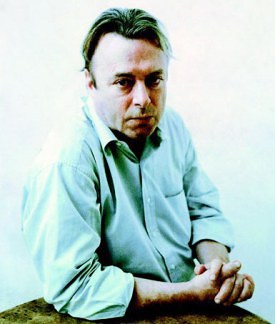26 Oct Why Christopher Hitchens Was Not an Atheist
 After professional provocateur Christopher Hitchens published God is Not Great: How Religion Poisons Everything he became the patron saint of 21st century atheism. But was Hitchens really an atheist? Here at LivingHour.org we always suspected no; that Hitchen’s diatribes were directed toward simply the literal sects of religion and those who anthropomorphize God as an old man in the clouds, living in a gated community with pearly gates.
After professional provocateur Christopher Hitchens published God is Not Great: How Religion Poisons Everything he became the patron saint of 21st century atheism. But was Hitchens really an atheist? Here at LivingHour.org we always suspected no; that Hitchen’s diatribes were directed toward simply the literal sects of religion and those who anthropomorphize God as an old man in the clouds, living in a gated community with pearly gates.
Back in 2013, Hitchens starred in the documentary Collision, with Pastor Douglas Wilson. Unfortunately, like most ‘religious’ experts who battle Hitchens, Wilson tried to out-intellectualize the Vanity Fair writer, failed miserably, and ultimately the whole debate devolved into two peacocks pruning.
After the Collision documentary was released, Hitchens and Wilson pomoted their film by publishing opposing articles in The Huffington Post. Hitchen’s post was titled Religion Is Absurd, while Wilson’s counterpoint was elegantly titled Atheists Suck at Being Atheists.
In Hitchen’s article, the ‘atheist’ finally lets it slip that he was indeed not an atheist. He wrote:
The great cultural question before us is therefore this: can we manage to preserve what is numinous and transcendent and ecstatic without giving any more room to the superstitious and the supernatural.
Numinous? Transcendant? Ecstatic? Let’s quickly run down what these terms mean. Numinous: describes the presence or power of a divinity. Transcendent: beyond and outside the ordinary range of human experience or understanding. Ecstatic: a feeling of great rapture, often used to describe a religious experience. These are all terms not commonly associated with atheism, but rather the Spiritual But Not Religious, which we had suspected Hitchens of being all along—although he never admitted it before his sad and untimely death.
